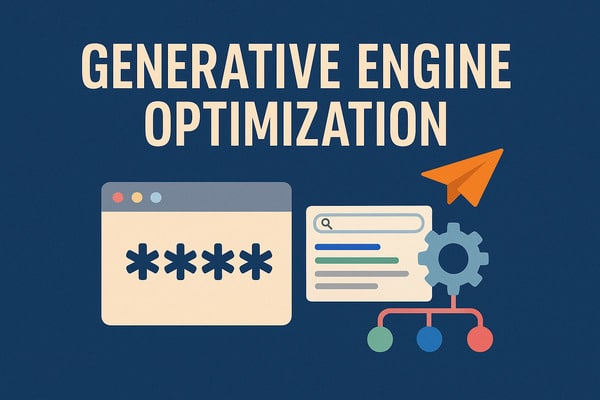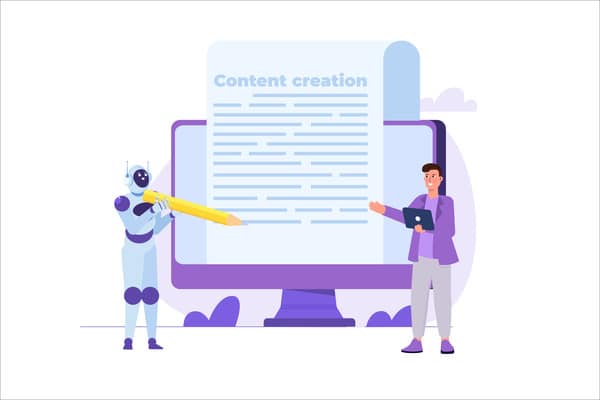In the rapidly evolving digital marketing landscape, staying ahead of the competition means constantly refining and optimizing your search engine optimization (SEO) strategy. One of the most crucial aspects of keyword research and SEO performance processes is recognizing content gaps – those missed opportunities where your website fails to meet user intent, capture relevant keywords, or match competitors’ offerings.
While manual audits can be time-consuming and often incomplete, that’s where artificial intelligence (AI) comes into play. Today’s sophisticated AI tools offer marketers the ability to analyze content, keyword usage, search queries, competitor landscapes, and user behavior with unprecedented accuracy and speed. These insights allow businesses to create targeted, high-performing content that attracts, engages, and converts.
In this article, we’ll explore why leveraging AI tools to identify content gaps and create content is no longer optional – it’s a necessity. We’ll break down the role of AI in modern SEO, examine how it uncovers hidden opportunities, and outline a strategic approach to optimizing your content for search engines and user experience.
Optimizing content so that it could impact SEO rankings and work well with search algorithms is a complex process that needs to be approached not only with artificial intelligence but also human expertise. In other words, it is always a good idea to unite technological advancements and SEO specialists’ knowledge to optimize websites and improve their search visibility through off- and on-page optimizations.
Understanding What Content Gaps Are and Why They Matter
Before diving into the usage of AI solutions for content gap analysis, it’s essential to understand what content gaps actually are. A content gap occurs when:
- Your site fails to address certain topics your target audience is searching for (or, in other words, your site fails to match target keywords);
- Competitors rank for keywords or topics you don’t cover;
- The existing content doesn’t sufficiently answer user questions or meet their intent;
- There are stages of the buyer journey not addressed by your content (for instance, awareness, consideration, or decision).
These gaps can result in lost traffic, lower conversion rates, and diminished authority in your niche. Worse, they allow your competitors to gain ground in areas where you should be dominating. Content gaps can be subtle – sometimes just a missing keyword variation or a poorly optimized blog post – but they can have a significant impact on performance.
The Role of AI in Modern SEO Audits
Traditional SEO audits rely heavily on manual processes: reviewing keywords, comparing competitor sites, and making educated guesses based on analytics. While this approach can still offer value, it is often inefficient and limited in scope. AI-powered tools, on the other hand, are transforming how SEO professionals identify and address content deficiencies.
AI excels at:
- Pattern recognition: It can analyze massive datasets to identify actionable insights into user behavior, search trends, and competitor performance;
- Natural Language Processing (NLP): AI understands the semantic relationships between words, enabling it to evaluate how well your content aligns with search intent;
- Predictive analytics: AI can forecast future trends and search behaviors, helping you prepare content proactively;
- Automation: It handles repetitive tasks like keyword clustering, internal linking suggestions, and topic generation with speed and accuracy.
These capabilities mean AI doesn’t just identify what’s missing – it tells you why it’s missing, how to fix it, and what to prioritize next.
How AI Identifies Keyword and Topical Gaps
Keywords remain a cornerstone of SEO strategy. But effective keyword targeting goes beyond high search volume terms – it includes long-tail keywords, question-based phrases, and semantically related topics.
AI tools such as SEMrush, Clearscope, SurferSEO, and MarketMuse use NLP and machine learning to:
- Map keyword usage across your site;
- Compare your keyword profile against top-ranking competitors;
- Identify gaps in the current content;
- Define trending topics and underutilized phrases;
- Cluster keywords based on user intent (informational, navigational, transactional).
For example, if you’re in the fitness industry and you have content about “home workouts,” an AI tool might find that competitors also rank well for related terms like “bodyweight routines,” “HIIT at home,” and “no-equipment exercises.” If your content lacks these topics, that’s a clear gap – one you can fill to boost visibility.
Moreover, AI doesn’t just focus on keywords – with its help, you can gain deeper insights into your own SEO strategy since it looks at topics and themes holistically, ensuring your content is comprehensive and contextually relevant.
Content Performance Analysis: What’s Working and What’s Not
Not all content gaps stem from what’s missing – sometimes it’s about what’s underperforming. AI tools like Google Analytics 4 with machine learning integrations, or content intelligence platforms like Contently or DashThis, help marketers understand which pages are underdelivering in terms of:
- Organic traffic;
- Engagement metrics (time on page, bounce rate);
- Conversion rates;
- Search rankings (or, in other words, SEO rankings);
- Search engine results;
- Backlink acquisition.
AI can help diagnose why certain content isn’t performing – maybe it’s outdated, lacks internal linking, is too shallow, or doesn’t match the user’s search intent. More importantly, it can recommend optimizations to refresh and realign your content strategy.
For example, if an older blog post used to rank but has slipped in SERPs, AI might suggest adding new statistics, optimizing headings, or including more recent keyword variations.
Competitive Content Gap Analysis
Understanding what your competitors are doing – and where they’re excelling – is a critical piece of the SEO puzzle. AI tools streamline the competitor analysis process by:
- Crawling competitor websites (including their meta descriptions) to extract their content strategy;
- Identifying keywords and topics where they outperform you in terms of user engagement;
- Pinpointing content formats (videos, infographics, pillar pages) that they use effectively;
- Evaluating backlink profiles and referral sources that contribute to high search engine rankings.
Tools like Ahrefs and SEMrush allow you to enter competitor URLs and generate side-by-side comparisons of keyword overlap, SERP rankings, and backlink strengths. From there, AI-powered recommendations can highlight exactly where you should focus your technical SEO efforts to close the gap – or even leap ahead.
A practical application could be noticing that your competitors have detailed comparison guides to match user search patterns, whereas your site only offers product descriptions. That content type may represent an untapped opportunity for you and have a positive impact on your SEO landscape.
Turning Insights into Action: Optimizing Your Content Strategy with AI Content Optimization Combined with Human Creativity
Once gaps are identified through competitive analysis, the next step in a high-quality content strategy is filling them strategically. Advanced AI tools don’t just find weaknesses but also help in content creation and optimization. Namely, they do a great job when it comes to:
- Content generation: Tools like Jasper or Writesonic use AI to draft initial content based on best practices, ideal word count, and optimal structure for both global and local search queries;
- On-page SEO optimization: SurferSEO or Clearscope suggest high-value keyword densities, subtopics, and readability improvements;
- Internal linking: AI tools recommend where and how to link between pages for better crawlability and SEO juice;
- User experience (UX) insights: AI can predict how changes in content layout or structure might improve engagement or reduce bounce rates.
This approach ensures that every piece of content you produce isn’t just published – it’s optimized from the ground up for performance. For example, after identifying a gap around the keyword “eco-friendly packaging,” AI might help you write a 1,500-word blog post structured around subtopics like biodegradable materials, shipping practices, and sustainability certifications, all while keeping an optimal keyword ratio and tone of voice.
Conclusion: Let AI-Powered Insights Drive Smarter Content Creation
All in all, in today’s hyper-competitive digital landscape, relying on intuition or outdated tools to find content gaps simply isn’t enough. AI-powered tools offer deep, data-driven decisions and insights that analyze competitor content, uncover missed opportunities, prioritize what matters, and accelerate the content optimization process. They are not just helpful – they are essential for generating keyword-rich content and, therefore, staying ahead. By leveraging AI in your SEO strategy, you can ensure that your website speaks directly to your audience’s needs, matches – or outperforms – your competitors, and ranks prominently in search results. The result? More visibility, more traffic, and more conversions.
If you’re ready to uncover your content gaps and turn them into growth opportunities, the IntlTech team is here to help. Our digital marketing experts specialize in AI-driven SEO strategies designed to elevate your brand, drive measurable results, and future-proof your online presence. Let us guide your business toward a smarter, more effective SEO strategy – powered by AI, backed by experience, and tailored just for you.






